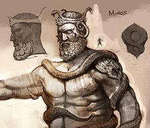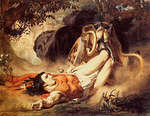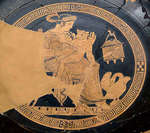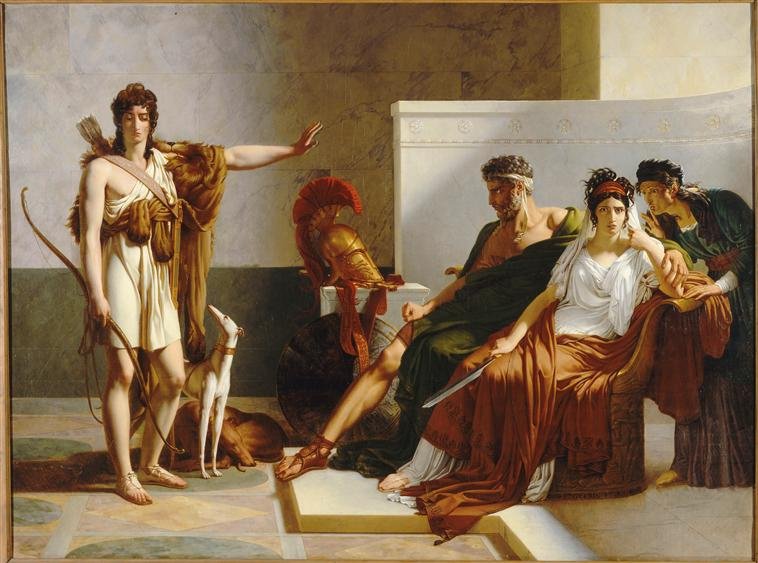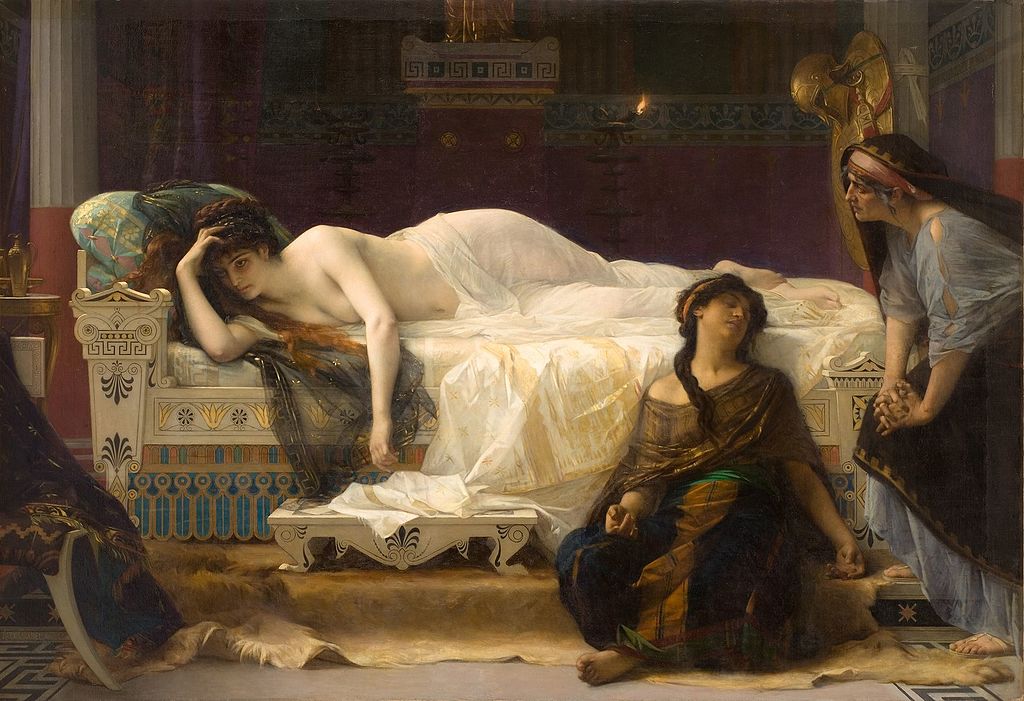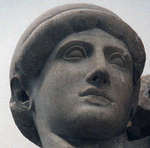
Phaedra
Phaedra :: Tragedy and Passion
Phaedra stands as one of the most tragic and complex figures in Greek mythology. As the daughter of King Minos and Queen Pasiphae of Crete, her story is intertwined with themes of forbidden love, deceit, and tragic consequences.
Marriage to Theseus
Phaedra's story takes a dramatic turn upon her marriage to Theseus, the legendary hero and king of Athens. This union brought her into the world of Athenian myth and drama, setting the stage for the tragic events that would unfold.
Forbidden Love for Hippolytus
Phaedra's life was marked by her intense and forbidden love for Hippolytus, Theseus's son. According to one version of the story, this unrequited love was a curse from Aphrodite, the goddess of love and beauty, whom Hippolytus had spurned. In her devotion to Artemis, goddess of the hunt and chastity, Phaedra struggled between her moral obligations and her overwhelming passion.
Deception and Tragic Outcome
Rejected by Hippolytus, Phaedra's love turned to bitterness. In a desperate and deceitful act, she falsely accused Hippolytus of raping her. This accusation led Theseus to curse his son, invoking the wrath of Poseidon. In one version of the myth, Hippolytus meets his death when his chariot horses are frightened by a sea monster, leading to a fatal accident. In another, Theseus directly causes Hippolytus's death, after which Phaedra, consumed by guilt, takes her own life.
Phaedra's Legacy in Greek Drama
The story of Phaedra and Hippolytus has been a popular subject in Greek drama, explored by playwrights such as Euripides and Seneca. These dramatizations delve into the complexities of Phaedra's character, her inner turmoil, and the moral and emotional consequences of her actions.
Symbolism and Themes
Phaedra's narrative is rich in symbolism and themes that resonate through Greek mythology. Her story explores the consequences of divine intervention in human affairs, the conflict between passion and duty, and the tragic outcomes of deceit and misunderstanding.
See Also: Phaedra and Hippolytus, Minos, Pasiphae, Theseus, Hippolytus
Phaedra Q&A
Phaedra Associations
Link/Cite Phaedra Page
Written by: The Editors of GreekMythology.com. GreekMythology.com editors write, review and revise subject areas in which they have extensive knowledge based on their working experience or advanced studies.
For MLA style citation use: GreekMythology.com, The Editors of Website. "Phaedra". GreekMythology.com Website, 30 Nov. 2023, https://www.greekmythology.com/Myths/Mortals/Phaedra/phaedra.html. Accessed 26 April 2024.

